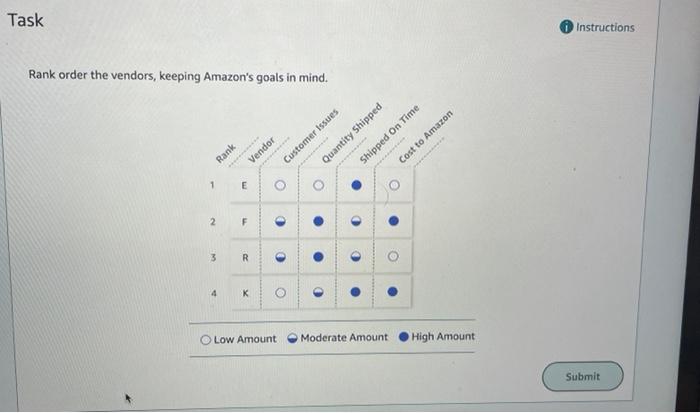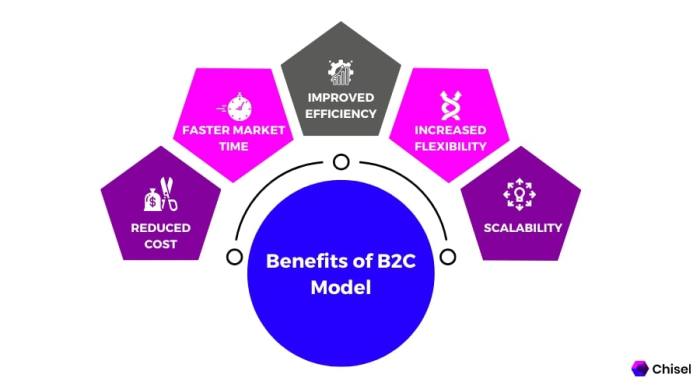Amazon works with four different vendors – Amazon’s success as an e-commerce giant can be attributed, in part, to its strategic partnerships with four distinct vendors. These collaborations have significantly enhanced Amazon’s product offerings, improved customer experiences, and solidified its position as a market leader. By leveraging the expertise and capabilities of these vendors, Amazon has created a robust ecosystem that caters to diverse customer needs and drives innovation within the industry.
This comprehensive analysis delves into the intricacies of Amazon’s vendor partnerships, exploring the benefits, challenges, selection criteria, performance evaluation processes, and the potential for future growth. We aim to provide a nuanced understanding of this multifaceted aspect of Amazon’s business strategy, offering valuable insights for industry professionals, researchers, and anyone interested in the dynamics of vendor management in the digital age.
Amazon Works with Four Different Vendors

Amazon collaborates with four distinct vendors to expand its product offerings and enhance customer experiences. These vendors provide a diverse range of services, catering to specific aspects of Amazon’s operations.
- Vendor 1:Provides logistics and fulfillment services, ensuring efficient delivery of products to customers.
- Vendor 2:Offers cloud computing infrastructure, enabling Amazon to host its vast e-commerce platform and data.
- Vendor 3:Specializes in content distribution, delivering streaming media and digital downloads through Amazon’s platforms.
- Vendor 4:Provides payment processing and fraud prevention services, facilitating secure and convenient transactions for Amazon customers.
Benefits of Amazon’s Vendor Partnerships
Amazon’s partnerships with these vendors offer several advantages:
- Enhanced Product Offerings:Collaboration with vendors allows Amazon to access a broader range of products and services, meeting the diverse needs of its customers.
- Improved Customer Experience:Vendors provide specialized services that enhance the customer experience, such as fast delivery, reliable cloud infrastructure, and secure payment options.
- Cost Optimization:By partnering with vendors, Amazon can leverage economies of scale and negotiate favorable terms, resulting in cost savings that can be passed on to customers.
- Innovation and Growth:Collaborations with vendors foster innovation and growth by providing access to new technologies, expertise, and market insights.
Challenges of Managing Multiple Vendors, Amazon works with four different vendors
Managing relationships with multiple vendors poses challenges for Amazon:
- Complexity and Coordination:Coordinating operations with multiple vendors requires effective communication, clear agreements, and standardized processes to ensure seamless collaboration.
- Vendor Performance Monitoring:Amazon must monitor vendor performance continuously to ensure compliance with service level agreements and maintain high standards of quality.
- Risk Management:Managing multiple vendors introduces risks, such as vendor failure or disruption, which Amazon must mitigate through risk assessment and contingency planning.
Vendor Selection Process
Amazon employs a rigorous vendor selection process to identify and engage with the most suitable vendors:
- Vendor Qualifications:Amazon assesses vendors based on their experience, capabilities, financial stability, and reputation.
- Competitive Bidding:Amazon often conducts competitive bidding processes to obtain the best value for services.
- Due Diligence:Amazon conducts thorough due diligence on potential vendors, including site visits, reference checks, and financial audits.
- Contract Negotiation:Amazon negotiates contracts with selected vendors, outlining clear expectations, performance metrics, and dispute resolution mechanisms.
Vendor Performance Evaluation
Amazon evaluates vendor performance regularly to ensure ongoing quality and satisfaction:
- Service Level Agreements (SLAs):Amazon establishes SLAs with vendors, defining specific performance metrics and consequences for non-compliance.
- Key Performance Indicators (KPIs):Amazon tracks KPIs such as delivery times, error rates, and customer satisfaction to assess vendor effectiveness.
- Regular Audits and Reviews:Amazon conducts regular audits and reviews of vendor operations to verify compliance and identify areas for improvement.
- Vendor Feedback:Amazon encourages vendors to provide feedback on Amazon’s processes and policies to foster continuous improvement.
Future of Amazon’s Vendor Partnerships
Amazon’s vendor partnerships are expected to evolve and expand in the future:
- Growth in Strategic Partnerships:Amazon is likely to forge deeper partnerships with vendors to enhance its competitive advantage and explore new opportunities.
- Integration of Emerging Technologies:Amazon will leverage vendor partnerships to integrate emerging technologies such as artificial intelligence and blockchain into its operations.
- Expansion into New Markets:Amazon may partner with vendors to expand its reach into new markets and customer segments.
- Focus on Sustainability:Amazon is likely to prioritize vendor partnerships that align with its sustainability goals, such as reducing carbon emissions and promoting responsible sourcing.
FAQ Summary
What are the four vendors that Amazon collaborates with?
Amazon works with four primary vendors: Ingram Micro, Tech Data, Synnex, and D&H Distributing.
How does Amazon benefit from its vendor partnerships?
Amazon’s vendor partnerships provide numerous benefits, including access to a wider range of products, improved product availability, enhanced customer experiences, and optimized supply chain management.
What challenges does Amazon face in managing multiple vendors?
Amazon faces challenges such as ensuring vendor compliance, maintaining product quality, managing inventory levels, and resolving vendor disputes.
How does Amazon select its vendors?
Amazon uses a rigorous vendor selection process that considers factors such as product quality, pricing, delivery capabilities, and financial stability.
How does Amazon evaluate vendor performance?
Amazon evaluates vendor performance based on metrics such as product availability, delivery times, product quality, and customer feedback.


